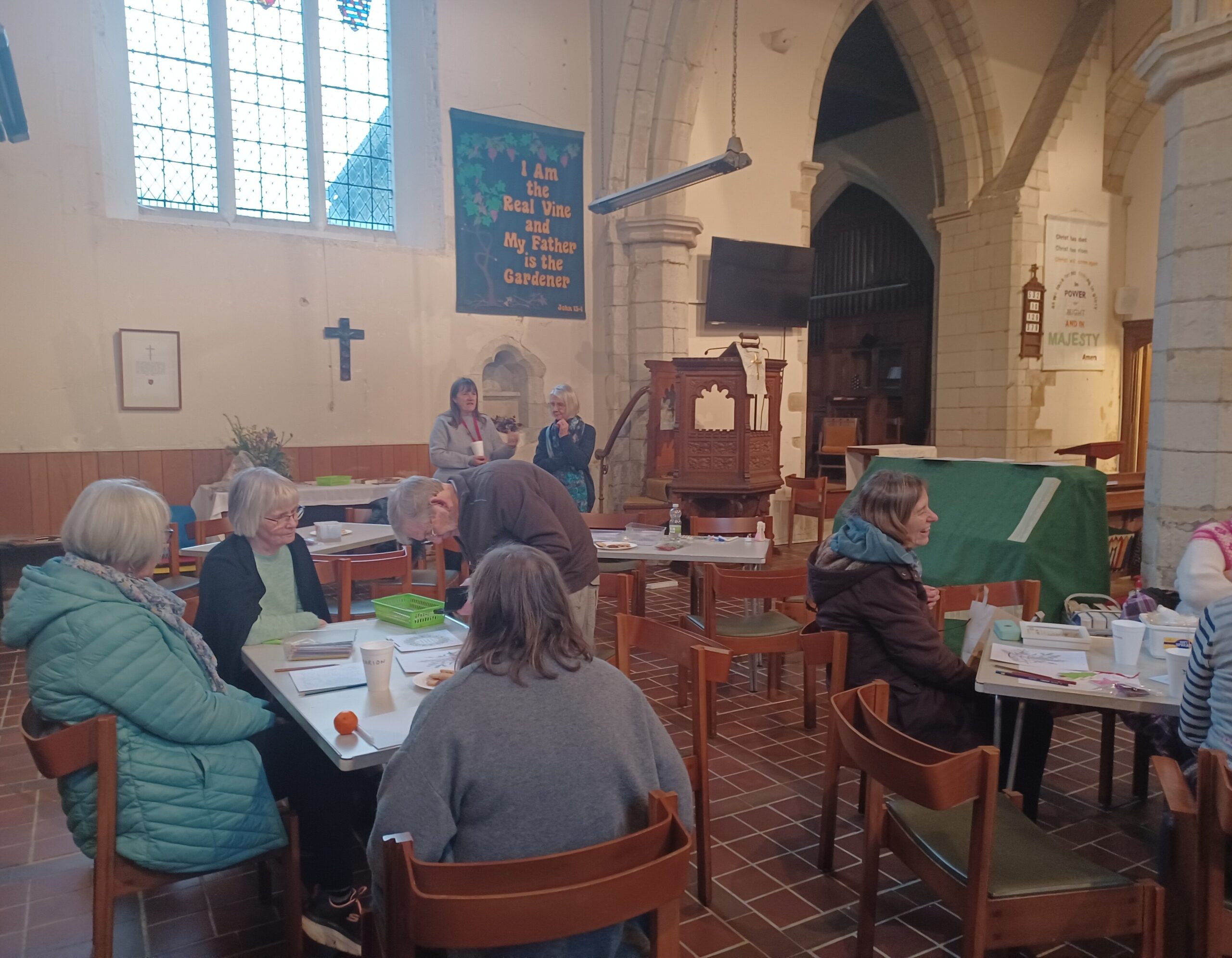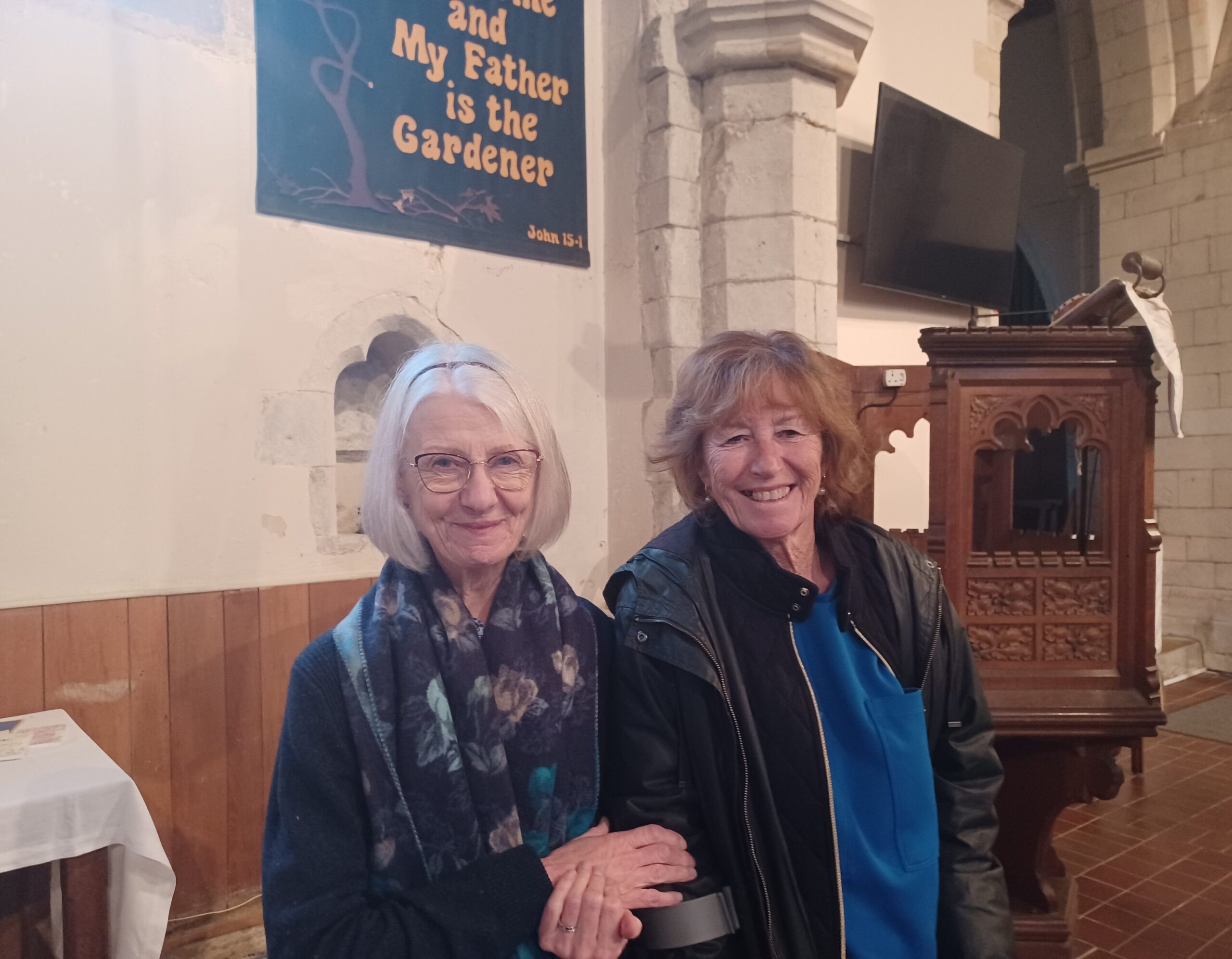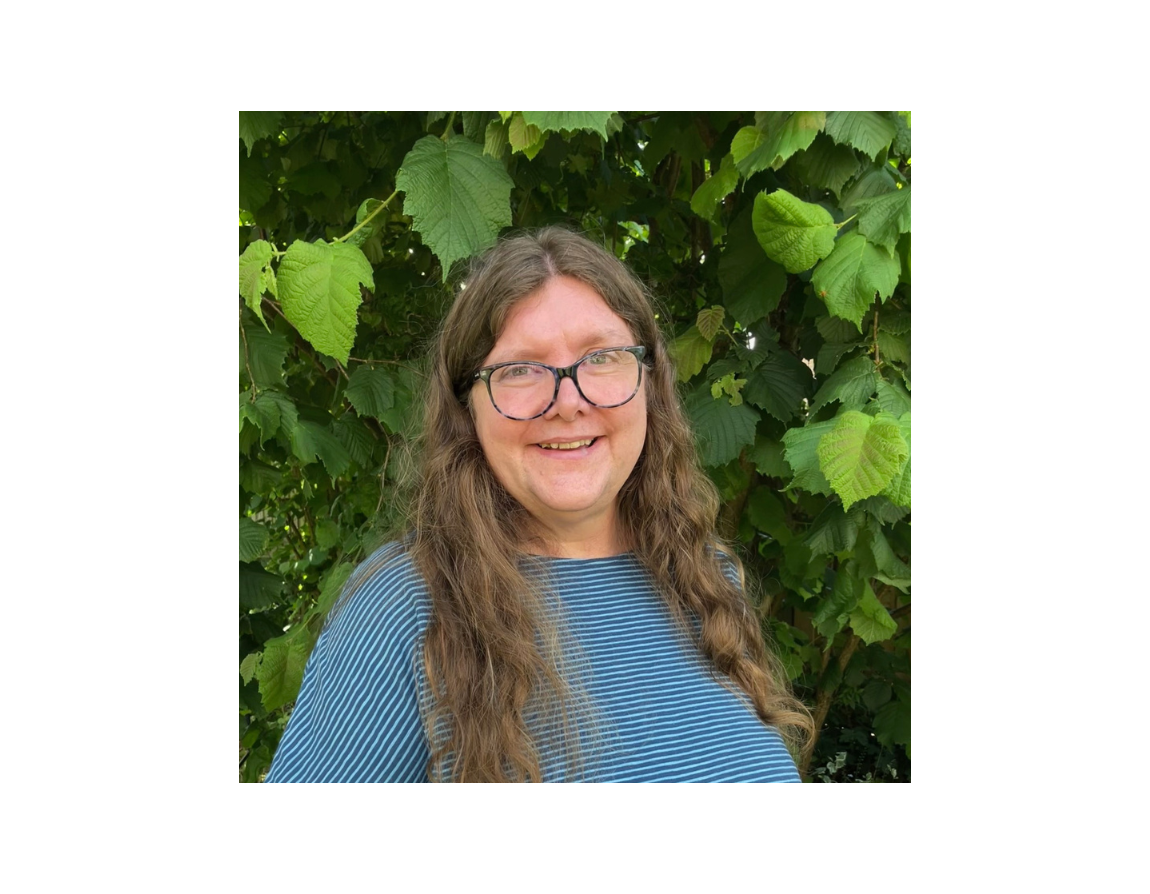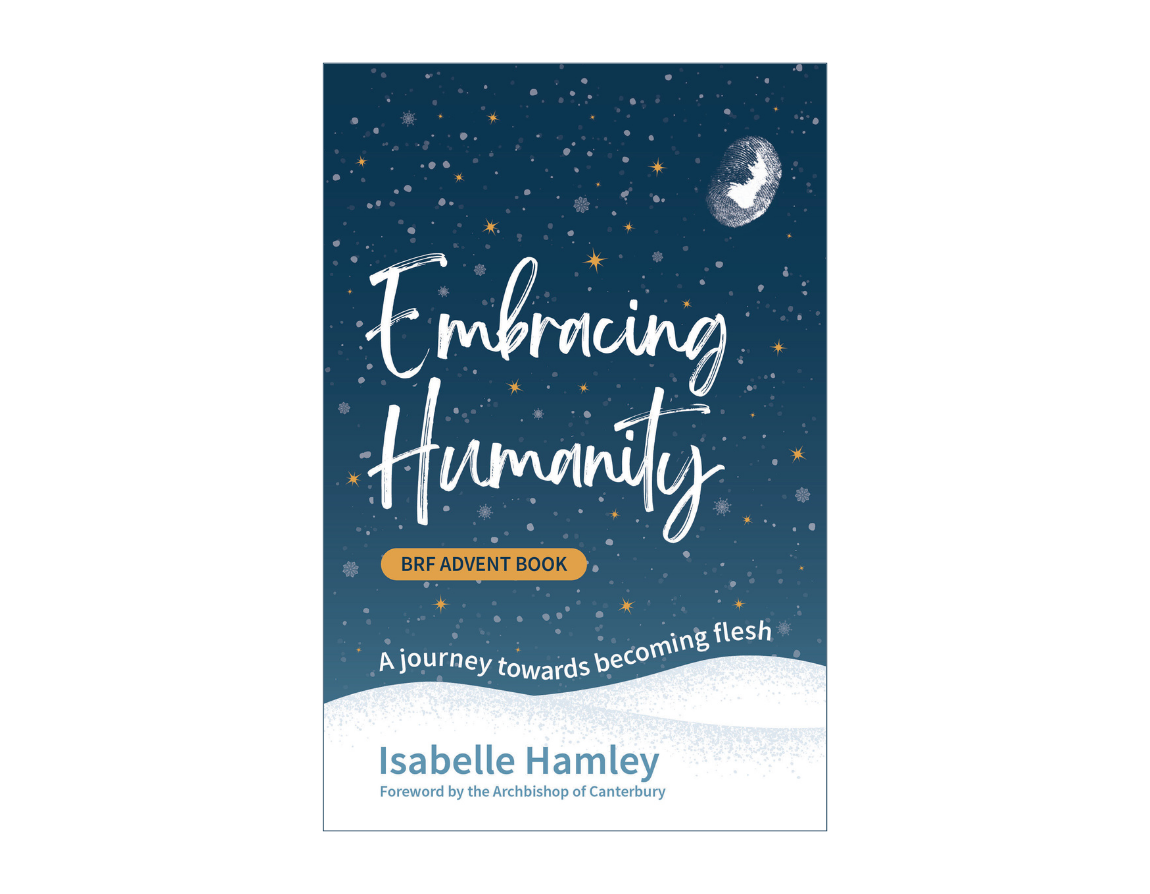The third instalment in our series of personal reflections on Advent from our ministry teams comes from Julia Burton-Jones of Anna Chaplaincy.
8 December 2024
‘Christmas creep’
In my small group at church we are studying Embracing Humanity, BRF Ministries’ 2024 Advent book by Isabelle Hamley. Though I am only partway through the book, it has been full of riches so far and I am glad we chose to read it.
As we were planning for our study on Embracing Humanity, the group spent two evenings in November discussing how our ideas about Advent, in both church and society, have altered over recent decades. Christmas arrives too soon, with ‘Christmas creep’, as it has been termed, bringing gifts, decorations and Christmas music into our shops earlier and earlier. Does Advent mean anything in a secular society? What does buying an ‘Advent’ calendar signify for those without faith?
In exploring how we feel about the run-up to Christmas, we touched on the additional stress the season places on many, and I suspect (even judging by the small sample of my small group) that this is a gendered experience; the majority of the emotional and practical labour is done by women, leaving us feeling relieved when the relentless pressures associated with buying gifts, writing cards, preparing food and hosting family come to an end.

Does Advent mean anything in a secular society? What does buying an ‘Advent’ calendar signify for those without faith?
Space to Breathe
So, it was a great joy to be treated by Anna Chaplains in Rochester Diocese (where I am Anna Chaplaincy lead) to a Space to Breathe on 27 November to mark ten years of Anna Chaplaincy in Kent. Cudham and Downe Anna Chaplains John and Kim Curle prepared a day for Anna Chaplains and Anna Friends to spend together being looked after while enjoying Christmas crafts and a time of worship.
It was a wonderful oasis of peace and creativity, and Kim and John’s generosity was heartwarming. It was unusual for the team to be on the receiving end of such loving kindness when we tend to be the ones offering such events to older people.
Space to Breathe got me thinking about Day 3 in Embracing Humanity, entitled ‘Related and dependent’, where Isabelle talks about our need for one another, going right back to the story of Eve being created from Adam in Genesis. We so easily hide the bit of being human which is about needing others behind a wall of self-sufficiency and autonomy, and in this I know I am guilty; I love giving Christmas gifts but am less good at receiving them from others.
I was heartened to read in Embracing Humanity that ‘to be dependent is not to be weak, less adult, or less human. Being dependent, needing others, is profoundly, deeply and beautifully human.’ Jesus did not ‘take flesh’ as a fully grown adult but as a dependent infant. For older people who have reached a stage of frailty, depending on others for their care, this is a positive message.

To be dependent is not to be weak, less adult, or less human. Being dependent, needing others, is profoundly, deeply and beautifully human.
Right: Anna Chaplains and Anna Friends at Space to Breathe
Fragile and vulnerable
Day 4 in Embracing Humanity is equally relevant to our work with people living with dementia and disability in their later years, as it looks at Jesus being ‘fragile and vulnerable’. Jesus became fragile by taking our human form, but Isabelle also explores the vulnerability in the heart of God which stems from love and compassion for the human race. We share this vulnerability as we are also called to be compassionate. Isabelle writes: ‘True compassion goes hand in hand with vulnerability, because I can only be compassionate when I open my heart to love another and feel their pain, their brokenness, their struggle.’
As I visited ten Anna Chaplains in September to mark our ten years in Kent, I heard many stories of the painfulness of being alongside older people through times of anguish and heartache. There is a cost to caring, but in doing so we are practising an incarnational ministry, bringing the light and love of God into dark situations.

There is a cost to caring, but in doing so we are practising an incarnational ministry.
Left: Anna Chaplain Sue and Anna Friend Gill, at Space to Breathe
Embracing our embodied selves
In closing my reflection, I would like to dwell on Day 2 of Embracing Humanity, which is entitled ‘embodied’. The subtitle of the book is ‘a journey towards becoming flesh’ so the focus is on what it means that Jesus lived with us in a human body. The dualism in western culture between the body and the soul, where the soul is seen as more important, is challenged by Isabelle through reference to scriptures showing the importance of the whole person. Jesus the bread of life gave us his body: ‘Unless you eat the flesh of the son of man and drink his blood, you have no life in you’ (John 6:53).
Bodies are precious to God and not despised. We are invited to explore what it is about our bodies that we don’t like and to thank God for their amazing intricacy.
It is heartbreaking to see ways in which online culture is causing young people especially to hate their bodies when they measure them against online images. The lengths to which some go to alter their bodies through cosmetic surgery, even putting their lives at risk, is a sad reflection on our society. New research by Professor Sonia Livingstone at the London School of Economics has shown the negative effect on young girls of social media beauty filters that alter their faces. The filters make them insecure about their natural features. What can we say as church to put across the message that God loves the way he made you, and you don’t need to change your body to meet unrealistic and changing beauty standards.
A final thought on valuing our embodied selves is taken from my many years of experience working alongside people affected by dementia. When words fail in later dementia, we can still use our bodies and spirits to worship God and participate in the rituals of our faith. Our bodies retain the memory of moving in response to God’s love when joining with the church family in singing, praying and taking Communion. This is wonderful for Anna Chaplains to behold in late-stage dementia, and a demonstration of the spirit of God at work in the whole person when cognition is diminishing.
I look forward to completing our Advent studies with Isabelle Hamley and seeing how the Word becoming flesh was part of God’s plan for our broken world.


